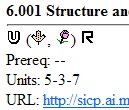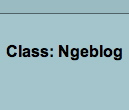Post by Stefan Reinauer, LinuxBIOS projectThe
LinuxBIOS project aims to take down the last barrier in Open Source systems by providing a free firmware (
BIOS) implementation. LinuxBIOS celebrates its Sixth anniversary this year, and has an installed base of over 1 million LinuxBIOS systems. With the
One Laptop Per Child (OLPC) project, that number is expected to exceed 10 million users in 2007. LinuxBIOS supports 65 mainboards from 31 vendors in
v1 and another 56 mainboards from 27 vendors in
v2.
There's always been one main obstacle for our project though: unlike other free software, LinuxBIOS can easily make your hardware a paperweight if you encounter a bug (unless you happen to have a spare flash chip...). Thanks to Google's sponsorship, we've been able to significantly improve the project's Quality Assurance process by creating a completely automated and distributed testing environment. Every single commit results in BIOS images being built for all mainboards, and tested on real hardware located all over the world. So whenever you want to download a LinuxBIOS image, you can now know that it works on a reference machine before flashing it to your system.
A
per-revision overview is available, as are
test results for specific revisions, and you can even get detailed reports that include
extensive logs for each motherboard. Developers can also use the build and test system without checking their code into the LinuxBIOS repository. The automatic build client has an option to submit BIOS images to the test system manually; you can see an overview of manually triggered builds
here. Anyone with a spare board supported by LinuxBIOS is welcome to put it into the automated test system, thus helping the LinuxBIOS project increase their quality on your hardware.




